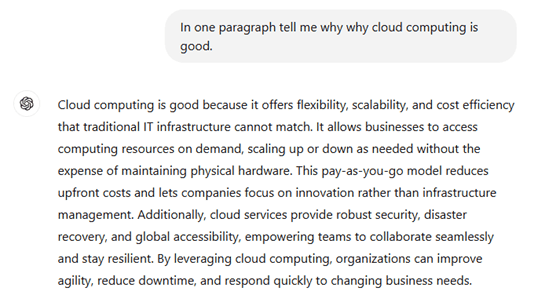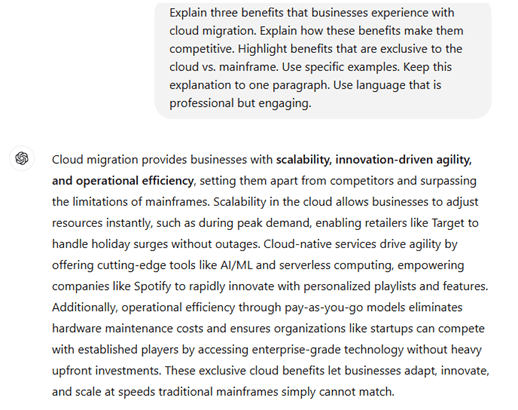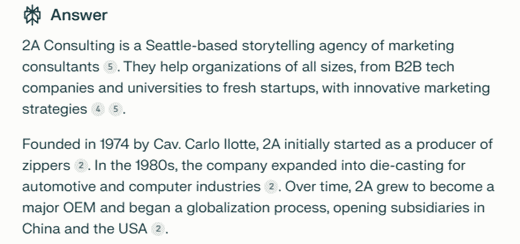By Andrea Swangard, The 2A Team
2024 was quite a ride. Whether you found it exhilarating, exhausting, or both, new music from artists we love—or are just discovering—makes things exciting. The talented team at 2A is into a wide variety of tunes, which makes sharing our favorites so much fun. Plus, swapping songs often takes us to interesting places. Did a bold new sound spark an idea for an innovative animation we recently delivered? Possibly!
To start your year off on a high note (or with a sweet synth solo), we’ve rounded up some of our favorite albums of 2024. Whether you gravitate toward introspective, mellow melodies or like to move your feet, we hope you find something that inspires you. Happy listening!
Only God Was Above Us—Vampire Weekend
Most reviewers say that there isn’t one skippable song on this album, and not only do I agree, but I also haven’t felt that way since Hole was around. Vampire Weekend brings the best of its signature sound, from slamming on those piano keys to some indie rock synth. The lyrics are timely—only Vampire Weekend can pull off upbeat melancholy and optimistic nihilism.
—Jane Dornemann
Canto De Un Ángel—Raymix
Raymix is Edmundo Gómez Moreno, an aerospace engineer and musician who blends traditional cumbia sonidera with electronics; he calls it electrocumbia. In all his songs, he says “Esto es la electrocumbia con Raymix, woo hoo!” His joy in his music is infectious and always lifts my spirits.
—Forsyth Alexander
Short n’ Sweet—Sabrina Carpenter
The pop girlies have been dominating this year, and the rise of Sabrina Carpenter and her newest album is no exception. You’ve definitely heard singles such as “Espresso” and “Please, Please, Please” on the radio everywhere, but taking a deeper dive solidifies that it’s a no-skip album. Expertly curated, and I keep coming back for more!
—Julianne Medenblik
Adult Contemporary—Chromeo
I have a fever, and the only prescription is more Chromeo! Thank goodness they treated us to a new album in 2024. Honestly, whatever mood I’m in, if Chromeo comes on, I can’t sit still. If you’re not familiar with the band, it’s kinda like…futuristic funk? Electro-soul? Synth-pop? It’s so much fun and I’m here for it.
—Andrea Swangard
Running River—John Butler
John Butler’s Running River is a meditative album that soothes the rough edges of modern life over an almost two-hour journey. As the first installment of his Four Seasons project, it serves as a stellar soundtrack for moments when my nervous system needs to downshift. I’m excited to see where his next release will take us in this transformative musical exploration.
—Melanie Hodgman
TAKE CARE—BigXthaPlug
EYYY. When you hear this calling card from the man who is not only the biggest but also the largest, you know it’s time to TURN UP. A combination of the unabashedly southern twang of PimpC (half of the legendary Houston group UGK) and the deep, guttural flows of Biggie, BigXthaPlug delivers something for everyone on his 2024 release TAKE CARE. With samples ranging across genres (Ray Martin’s “Under cover”) and mediums (The Clang from Law & Order), BigXthaPlug intricately weaves tracks of self-reflection (“Therapy Session”) and head-bouncing/face-scrunching anthems (“Mmhmm”).
—Evan Aeschlimann
EELS—Being Dead
This is the second album from Austin-based band Being Dead. The two founding members, Falcon Bitch and Shmoofy, play almost every instrument and perfectly pair their sweet harmonies with catchy, scuzzy hooks. This has been my go-to album when I need something energizing, fun, and a little weird to pick me up.
—Suzanne Calkins
Tigers Blood—Waxahatchee
I was a bit late discovering Waxahatchee, and I’m so glad I finally did. Her voice on this album is so powerful, and the songs are so well-written and catchy. Once I started listening to it, it was on repeat for months…and it was just the right companion for me in a year of change and self-exploration.
—Nora Bright
Girl With No Face—Allie X
The throwback synth-pop genre has become pretty saturated in recent years, but this dark moody album (a solo writing/production effort) is distinct! Enjoy entrancing gothic rhythms, delivered across grooves ranging from driving and intense to glittering vibe-outs that evoke everything from throwback heavy-hitters Clan of Xymox and Depeche Mode to modern contemporaries such as Kaleida and Vestron Vulture. Cohesive yet with such variety—it’s a real challenge to pick a favorite track. This scratched that darkwave itch in a way that a new album hasn’t for a while.
—Thad Allen
I’M DOING IT AGAIN BABY!—girl in red
This album is a love letter to reclaiming yourself after trauma and during mental-health struggles. It’s quirky, darkly peppy, and happily sapphic. Girl in red may only be 25 years old, but don’t let that number fool you. She has an old-soul sapphic vibe, kinda like King Princess. I especially appreciate her song “Pick me,” which feels like an emo ballad inspired by Hayley Kiyoko’s song “Curious.” Complex, big queer feels!
—Ren Iris
Total Blue—Total Blue
While probably better categorized as something between New Age and ambient jazz, I personally think this LA trio’s music can only be described as “cave/water-level music from the seminal Super Nintendo game ‘Donkey Kong Country,’” or adult contemporary for the millennial soul.
—Brian Dionisi
Brat—Charlie XCX
Is cloud marketing brat? Did I listen to a song called B2B over a hundred times this year? Why am I passively doing the apple dance at my desk right now? This album answers these questions and more.
—Jack Foraker
Manning Fireworks—MJ Lenderman
To quote a rando YouTube commenter, this album is “like if Stephen Malkmus and J Mascis started a country band,” which I think is spot on and a large part of why I’m loving this album. 2A’s own Suzanne and Nora opened my eyes to MJ Lenderman last year and I’ve been a fan ever since. Give him a listen and maybe you’ll become one, too!
—Mike Lahoda
A LA SALA—Khruangbin
This is the ultimate co-worker for design sessions—chill, inspiring, and never interruptive. With smooth, groovy, and hypnotic beats, it’s like a creative espresso shot without the jitters. Ideal for getting into the zone, when you need your ideas to flow as effortlessly as this band’s basslines.
—Jenni Lydell
Viva Tu—Manu Chao
Viva Tu is Manu Chao’s first album in 17 years, and its arrival felt perfectly timed. It shares sounds of resilience and optimism during turbulent times. I’ve always loved his all-over-the-map sound, and this was a welcome soundtrack to end the year.
—Daniel Schmeichler
My Method Actor—Nilüfer Yanya
This album is packed with dreamy, layered sounds and lyrics that really hit. Yanya’s mix of indie rock and experimental vibes feels super personal and is easy to get lost in.
—Mitchell Thompson
I Love You So F***ing Much—Glass Animals
I have a terrible habit of determining how good a song is based on how much it makes me cry, and this album got the waterworks going too much to not earn the spot as my top album of the year. Listening to Glass Animals always feels like watching a thousand memories crash together into a movie I’ve somehow never seen. And, if we’re being honest, sometimes nothing hits harder than a good old-fashioned nighttime walk getting lost in ya feels.
—Emily Zheng
Romance—Fontaines D.C.
Admittedly, it was 2022’s “Skinty Fia” that made me fall in love with Fontaines D.C. Their 2024 album, Romance, brings a more diverse range of styles, including synth rock, chamber pop, and shoegaze into their post-punk foundation. Each track delves into themes of love, loss, and the human condition, all while maintaining the band’s signature intensity and poetic flair. “Favourite” is one of the first singles from the album with a music video, and it turned my sappy mom heart to goo.
—Alyson Stoner-Rhoades
Share the storyhttps://2a.consulting/blog/2as-favorite-albums-of-2024/
Collapse the story

















